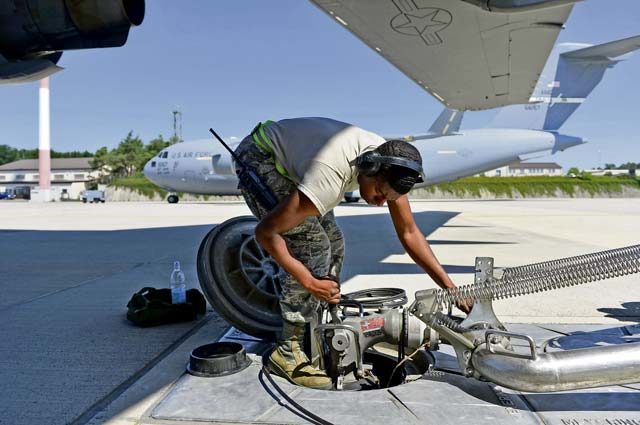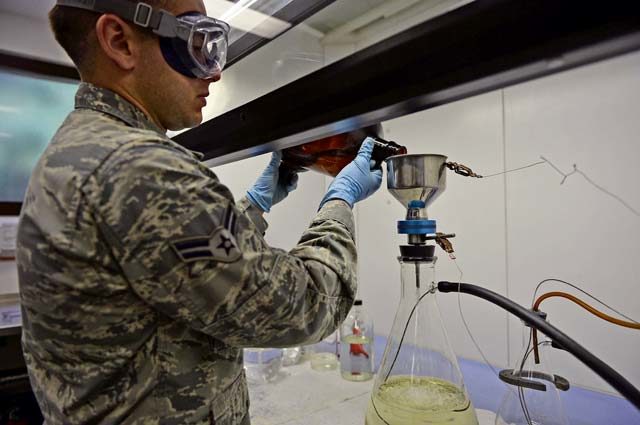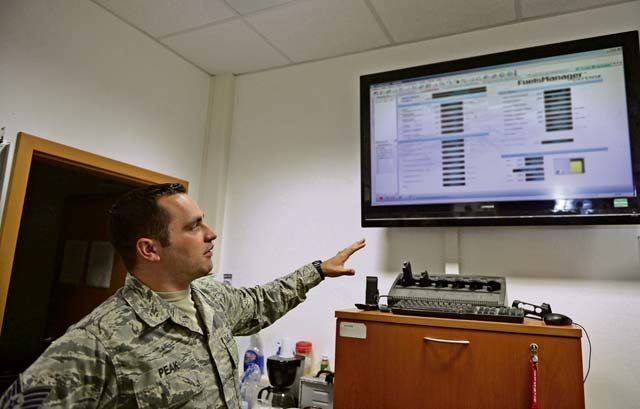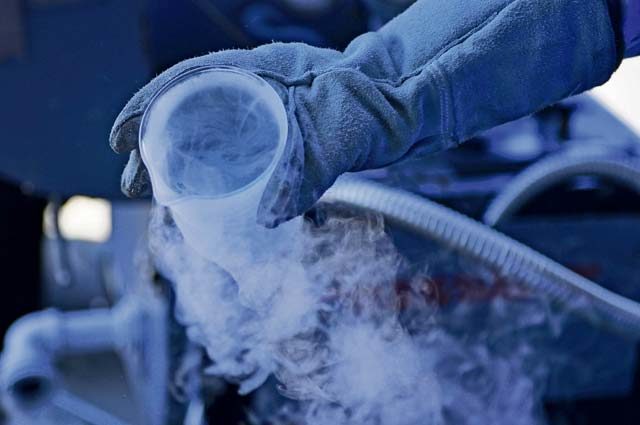What can win wars, but is not a weapon? What can bring society to life, but also destroy it? Fuel.
Communities around the world run on fuel in some shape or form, and Ramstein is no exception.
The 86th Logistics Readiness Squadron’s petroleum, oils and lubricants flight is responsible for handling the installation’s military fuel supply.
Master Sgt. Jeremy Aumiller, 86 LRS section chief fuels operations, said his Airmen’s mission is paramount.
“Without fuel, nothing moves,” Aumiller said. “You can load up all the bombs that need to go down range, but if there’s no fuel, that jet isn’t going anywhere—those bombs are worthless. If it contains any kind of a moving engine part, the mission stops without us.”
The Airmen receive, inspect, store and distribute fuel to their respective buyers. The flight manages fuel for both government-owned aircraft and ground equipment.
POL is divided into four sections: the fuels information service section — which serves as the nucleus of the flight, the mobility section, the laboratory and operations. The laboratory serves as an inspection center for government-owned fuel coming into Ramstein.
Tech. Sgt. Antonio Lucio Jr., non-commissioned officer in charge of the 86 LRS fuels laboratory, said inspection is a very crucial part of the POL mission. The type of fuel a unit receives can have a crucial impact on its mission, he explained.

“There isn’t a single drop that comes in which isn’t sampled by us,” said Lucio, who has ten years of experience working with fuel. “The Air Force has certain specifications for aviation fuel. When we receive the fuel, we want to ensure the entire fuel recipe meets or exceeds those specifications.”
Lucio added that the consequences of not inspecting or giving an aircraft the wrong kind of fuel could be dangerous — and even deadly.
“The effect on aircraft would be either it could miss take-off or it could potentially crash,” he said. “It could result in loss of life and equipment. That’s what we want to avoid.”
POL does not just handle fuel in the sense of liquid to make a vehicle run. It also has a cryogenics department, which handles oxygen for pilots to breathe in high altitudes.
Aumiller acknowledged that there are potential risks that come with his Airmen’s job, but they mitigate these risks by using personal protective equipment. Smoking is also prohibited within 50 feet of a fuel source, he added.
Aumiller recalled a snow storm in January 2017, in which the Kaiserslautern Military Community witnessed record snowfall. Though it was the largest snowfall in a 24-hour period in the area since 2009, Aumiller and his Airmen still carried out their mission.
POL Airmen must report for duty even with the presence of severe weather or other hazardous conditions even when other Airmen do not.
Aumiller said their dedication shows the commitment of POL Airmen to ensure Ramstein keeps moving forward, through rain, sleet, or snow.





